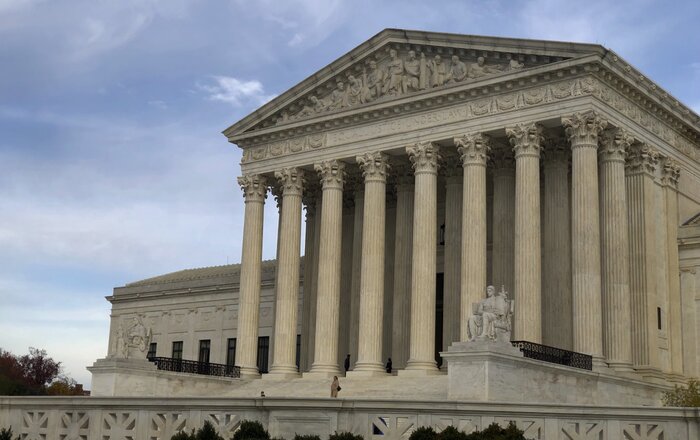Written By:
 Adam H. Rosenblum
Adam H. Rosenblum
Your Dedicated & Trusted Legal Team
3 Generations & 100+ Years of Combined Legal Experience

Depression and loss of dignity should not be a part of the aging experience. However, a 2012 Centers for Disease Control and Prevention study found that 49 percent of nursing home residents were suffering from depression. While it’s true that thanks to federal regulations, today’s nursing homes are a huge improvement over those of the past, the move to a nursing home often means a loss of independence for many elderly patients. A loss of independence can lead to a loss of personal dignity. This loss in dignity can lead to depression in your elderly loved one. According to Johns Hopkins University, depression in the elderly increases their chance of death by 59 percent.
Because personal dignity plays such a huge role in a nursing home resident’s happiness, finding the right nursing home for yourself or your loved one requires extensive research and an in-depth understanding of federal and state nursing home regulations. There are several databases that detail the results of nursing home inspections and violations. The gravity of such violations can often be a deciding factor when families and loved ones make a nursing home decision. When a nursing home or long-term care facility is found deficient in a certain area, it is because the home is in violation of federal or state regulations.
In many cases, when nursing homes violate federal and state laws they are undermining a resident’s personal dignity. Federal and state laws serve to protect nursing home and assisted living facility patients from abuse and neglect. In addition, under these guidelines, patients are guaranteed several rights including the right to privacy and security. Nursing homes can and should take the necessary actions to prevent resident neglect or abuse. By doing so, the home will be required to maintain certain standards that will help ensure an individual’s dignity.
The Nursing Home Reform Act
In the mid-1980s, Congress requested a study to investigate the quality of nursing homes across the country. In 1986, the Institute of Medicine found that nursing home patients in every state were being abused, neglected and given inadequate care. As a result of the study, Congress passed the Nursing Home Reform Act (NHRA) of 1987. Nursing home facilities had three years to prepare for the NHRA—which took effect on October 1, 1990. The NHRA applies to all facilities that receive or wish to receive funding from Medicare and Medicaid.
The NHRA is meant to ensure that residents of nursing homes receive quality care. In addition, the act provides criteria for all nursing homes to meet in order to receive government funding and establishes the Residents’ Bill of Rights. The NHRA specifies which services a nursing home is responsible for providing residents. Further, the Act establishes standards for these services. Required services include:
- Periodic assessments for each resident
- Comprehensive care plans for each resident
- Nursing services
- Social services
- Pharmaceutical services
- Dietary services
- Rehabilitation services
In addition to these required services, facilities with more than 120 beds must have a full-time social worker on staff.
The Residents’ Bill of Rights
Nursing home patients are in a vulnerable stage of their adult life. Some residents require care because of limited physical or mental abilities and others require care because of aging or disease. No matter the reason, deciding to put a loved one in a nursing home is a difficult decision. Families should know that federal law establishes rights intended to protect the dignity of their loved ones. If there is a violation of those rights in any way, families retain the right to seek damages through civil litigation. It is important that families understand exactly what rights their loved ones are entitled to under the NHRA’s Resident Bill of Rights.
Nursing home residents have the right to:
- Freedom from abuse, mistreatment and neglect
- Freedom from physical restraints
- Privacy
- Accommodation of medical, physical, psychological and social needs
- Participate in resident and family groups
- Be treated with dignity
- Exercise self-determination
- Communicate freely
- Participate in the review of one’s care plan
- Be fully informed in advance of any changes in care, treatment or change in status in the facility
- Voice grievances without the fear of discrimination or retaliation
Visiting your loved ones often is a way to make sure that staff is treating them and others in the facility with respect and dignity. If you suspect your loved one’s dignity is being compromised because of nursing home abuse and neglect, it is very important that you speak up. Report your suspicions to the New York State Department of Health, Nursing Homes and ICF/IID Surveillance. Then, contact a qualified nursing home abuse attorney right away to discuss your case.
Rights as a New York State Nursing Home Resident
The New York State Department of Health expands on the federal Resident Bill of Rights. The New York expansions includes the right to:
- Dignity, respect and a comfortable living environment
- Freedom to make choices
- The safeguard of money and property
- Freedom from both chemical and physical restraints
- Easy to use complaint system
- Receiving visitors of your choosing at the time of your choosing
Nursing Home Resident’s Right to Dignity
Because of the expanding aging population in the U.S., nursing homes have increasingly become a place where elderly people with complex needs are cared for until death. As a result, physical impairments and being dependent on others threatens the dignity of nursing home residents. Because of the diminished quality of life in most nursing home residents, helping to maintain a resident’s dignity is an important element in nursing home care. Nursing home staff have a responsibility to promote the personal dignity of patients as part of their daily practices.
Studies show that personal dignity is closely tied to a patient’s sense of worthiness. Further, these studies link outside circumstances and the actions of others to personal dignity. Several studies note that nursing home staff can enhance or preserve the personal dignity of residents through:
- Individualized care
- Restoring a resident’s control or autonomy
- Showing respect
- Advocating for the patient
- Sensitive listening
Through tailoring dignity-conserving care, nursing home staff across the country can help preserve the dignity of residents.
Author Bio
Federal law recognizes that personal dignity is critical to the resident quality of life in skilled nursing facilities. The Carlson Law Firm represents injured nursing home clients and their families nationwide. When nursing homes fail to implement practices that preserve the dignity of residents, they are likely violating federal and state regulation while endangering the life of your loved one. A nursing home neglect and abuse lawyer will invest the time, legal expertise and resources to recover damages.

 Adam H. Rosenblum
Adam H. Rosenblum
About The Author
Adam is the founding attorney and principal of Rosenblum Law. With more than two decades of legal experience in numerous areas of law practice, his primary focus is law firm management and business development.
Read MoreLatest from Our Blog



Editorial Standards
Rosenblum Law is committed to delivering informative content of the highest quality. All content is subject to our rigorous editorial standards for relevance, accuracy, sourcing, and objectivity. Everything is fact-checked by an editor and reviewed for legal soundness by one of our practicing attorneys prior to being published.
How to Cite Rosenblum Law’s Article
APA
Adam H. Rosenblum (Aug 27, 2010). Politician Who Collects Votes…And Speeding Tickets. Rosenblum Law Firm, https://rosenblumlaw.com/politician-who-collects-votes-and-speeding-tickets/
MLA
Adam H. Rosenblum "Politician Who Collects Votes…And Speeding Tickets". Rosenblum Law Firm, Aug 27, 2010. https://rosenblumlaw.com/politician-who-collects-votes-and-speeding-tickets/
